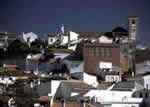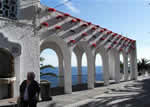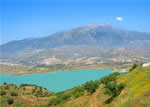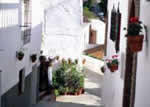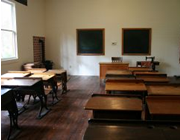 Sunset Properties continues its practical guide to education in Spain, this time moving on to provision for 3-5 year olds.
Sunset Properties continues its practical guide to education in Spain, this time moving on to provision for 3-5 year olds.
Who can attend and how do you register?
Your child can enjoy the benefits of full time education between the ages of 3 and 5 in the preescolar or infantil classes. They can attend from the start of the calendar year in which they are 3 (as long as they are potty trained) and will normally be in a class with children of the same age, graduating to the next class at the end of the year. Occasionally there may be a mix of 3 and 4 year olds depending on the numbers of children. Class sizes are kept low with a maximum of around 20 per class with one fully qualified teacher. Unlike the UK there are no non-teaching assistants and parents are not brought in to help in the classroom.
Graduation from nursery (guarderia) to infantil is not automatic. You will need to take the initiative to enrol your child at the Town Hall and provide the necessary documents such as proof of vaccinations, including MMR and Hepatitis B. Then each year you will be sent the appropriate re-registration forms to fill in.
What to expect
Unlike the flexible hours operated in the guarderia, at this stage children will be in school 5 days a week from 9am -2 pm. For the first couple of weeks they can attend for shorter hours but are expected to build up to full time pretty quickly. Holidays too are now longer the same as for the older children with a 13 week break in the summer! Summer school provision is starting to take off but you will have to pay for this.
Obviously the children's days are more structured now but because they are so young there is still plenty of rest and play. At the age of 3 they will learn colours and shapes, at 4 vowels sounds and at 5 they will be learning to read. Of course the strictly phonetic nature of the Spanish language means that learning to read is so much easier than in many other languages. There are end of term reports right from the start and proper graduation ceremonies (with home made mortar boards!) at the end of each year. Your child's teacher will be available at a set time each week if you have any issues you need to discuss.
There are also all the usual school trips and outings plus extra curricular activities and sports, including help with Spanish.
What is expected of parents?
If the teacher wants to see you then she will let you know. Even if your child is potty trained there are bound to be accidents and you will be called to come in and deal with it! Dressing up for fiestas and other special events is a frequent event in Spain so be prepared to make or buy a whole range of costumes throughout the year! You will also need to provide or pay for all the books and materials your child needs the school will give you a list.
Special needs
There is a structured process for assessing children with special needs before they start school and then annually thereafter. It's worth noting that education policy in Spain is geared towards separate provision for children with a high level of special needs rather than the inclusive policies of many other European countries.
Impressions
I have been speaking to mums who have 3-5 year olds in school in Competa. The overwhelming impression I have is that they are really happy with the school and they particularly emphasise how loving and caring the staff are with all the children. If you are moving to the area, hopefully this will give you confidence that your child will have a great experience and a good start to their education.
Sue Baker







